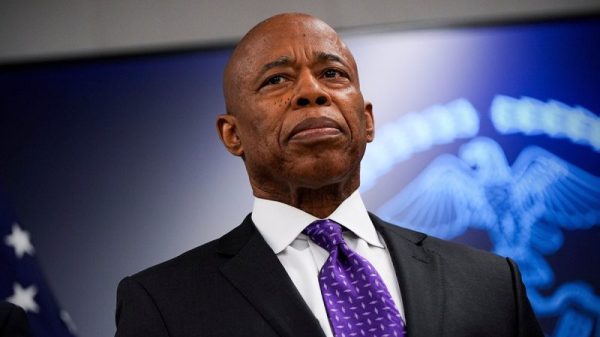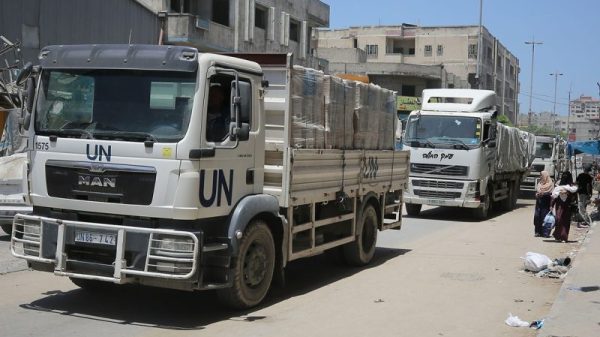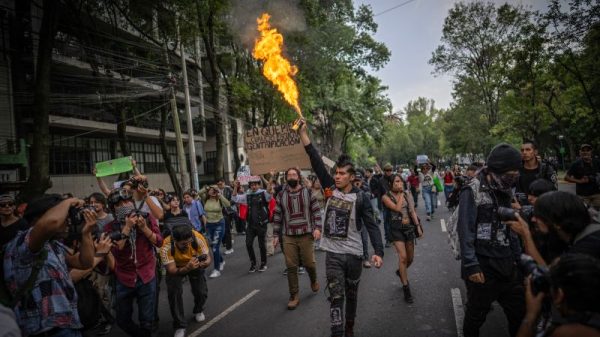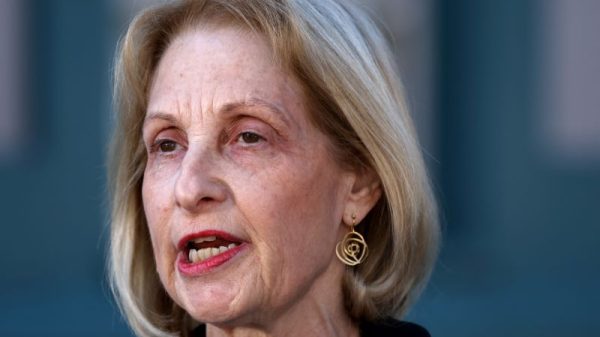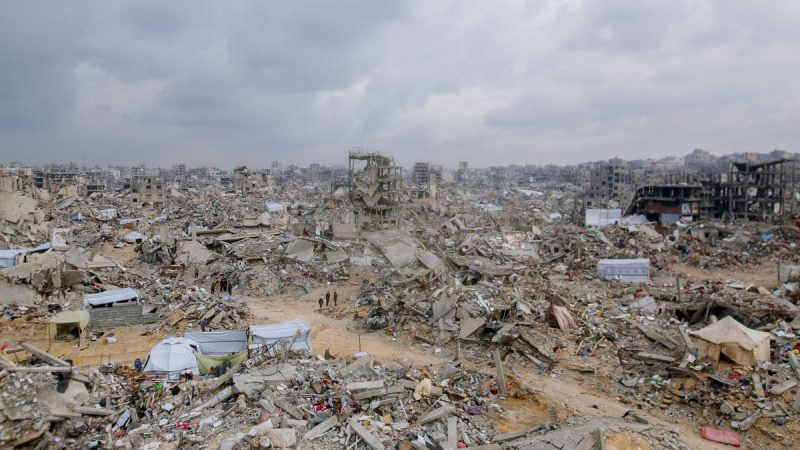President Donald Trump’s suggestion that Palestinians should leave Gaza to rebuild their lives after months of war has triggered a wave of reactions, exposing deep divisions within the enclave and across the Arab world.
Speaking alongside Israeli Prime Minister Benjamin Netanyahu at the White House last week, Trump outlined his vision for Gaza’s future, describing it as ‘the Riviera of the Middle East.’ His proposal to relocate 1.8 million Palestinians sparked outrage among Palestinian leaders and drew mixed reactions from Gazans.
While some Gazans have rejected emigration, others see it as their only hope.
‘I’m asking Donald Trump himself to relocate us as he suggested. And I’ll be the first one to go,’ one young man told the Center for Peace Communications team in Gaza during a camera interview. The man described his bleak reality, saying, ‘I want to leave because there’s no life left here. Life here is gone. I mean, just look around you.’
Another Gazan called on neighboring Arab countries to provide an escape route. ‘To our brotherly Egyptian and Jordanian people and King Abdullah—we hope they open the crossing for the youth who are leaving, for the wounded, for the sick, and the elderly who need treatment.’
Jordan’s King Abdullah is set to meet with President Trump on Tuesday, having rejected his plan for annexing Gaza and displacing Palestinians, Reuters reported.
The Palestinian Center for Policy and Survey Research poll conducted before the October 7 terror attacks found that 31% of Gazans were already considering emigration—44% among young people. The most popular countries were Turkey, followed by Germany, Canada, the United States and Qatar.
The poll’s authors said, ‘The main drivers seem economic, political, educational, security and concerns about corruption.’
Joseph Braude, founder and president of the Center for Peace Communications, told Fox News Digital that the number has grown significantly due to the ongoing devastation. ‘Through our daily contact with Gazans from all walks of life across the coastal strip, we have seen that proportion grow, amid the destruction of the present war, to a substantial majority of the population.’
Ayman Khaled, a Palestinian journalist, echoed similar sentiments, pointing to the grim prospects for rebuilding Gaza after months of relentless Israeli bombardment. ‘Gaza will need to go through a very long period of reconstruction. In that long period of time, where will the youth go? Where will the wounded go? We have more than 100,000 wounded. Even before the last war, a stream of people were leaving Gaza—workers, students, business people. That’s how it looked then. Now, those trends will double. There is no hope for the reconstruction of Gaza, not in a year nor 10 nor 15.’
He also warned that as long as Hamas remains in power, cycles of violence will continue, pushing more people to flee. ‘If Hamas remains on the scene, this will keep happening. Every day, we’ll have new killings. After every battle, they say they are victorious—but what is this victory? If we don’t seriously address the issue of Hamas leaving the political scene, we cannot talk about anything else. If Hamas remains, people will emigrate, whether willingly or unwillingly.’
Hamas described Trump’s plan as a ‘recipe for creating chaos and tension in the region,’ and for many Gazans, leaving is unthinkable. Speaking to The Associated Press, Mustafa al-Gazzar, a displaced Gazan, dismissed the idea of leaving. ‘You think you’ll expel me abroad and bring other people in my place? I would rather live in my tent, under rubble. I won’t leave. Put that in your brain.’
Amna Omar, 71, who has been sheltering in central Gaza, was equally defiant. ‘Gaza is our land, our home. We as Gazans… I don’t want to die in Egypt.’
Another woman in Deir al-Balah told Israeli news agency TPS-IL, ‘We clung to our destroyed homes and we clung to the soil of Palestine.’ While voluntary emigration has been quietly discussed for years, Trump’s endorsement has turned it into a divisive issue. Arab governments, wary of being seen as complicit in Palestinian displacement, have been quick to condemn it.
However, with Gaza in ruins and no reconstruction in sight, the debate over emigration is no longer theoretical. The question is not whether Gazans want to leave, but whether they will have the opportunity to do so.
A Gazan man interviewed on-camera by the Center for Peace Communications said ‘In the end, people will accept reality. They’ll emigrate because they want to live. They want to live in a country that protects and supports them. A country where you can hold your head up high. If our country isn’t looking out for us, where should we go?’
Reuters and The Associated Press contributed to this article.


